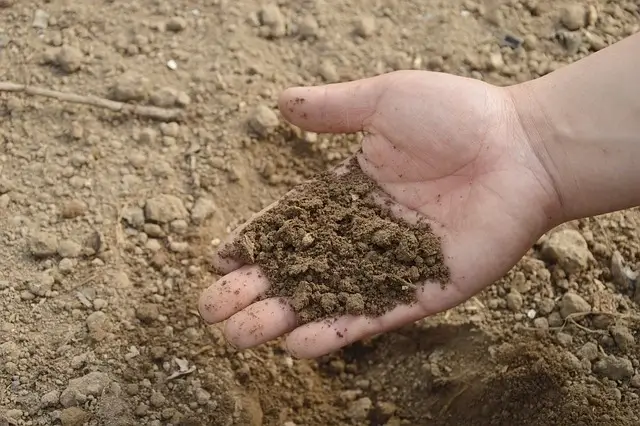- 1.1 What is soil?
- 1.2 Characteristics of good soil?
- 1.3 Importance of soil health and soil improvement in agriculture
- 1.4 Conclusion
What is Soil?
Soil is a complex mixture of minerals, organic matter, water, air, and microorganisms that covers the surface of the Earth. It forms from the weathering of rocks and other geological materials over long periods.
Soil is made up of several layers, including the topsoil, subsoil, and parent material. The topsoil layer is the most biologically active layer and is where most of the plant roots grow. It contains a high concentration of organic matter and nutrients that are essential for plant growth. The subsoil layer is deeper and contains less organic matter and nutrients but may contain important minerals that can be accessed by plant roots. The parent material layer is the deepest layer and consists of unconsolidated rock or other geological materials that have not yet been weathered into the soil.
Soil is a vital resource for human societies, as it supports agriculture and forestry, provides a habitat for a wide range of organisms and helps regulate the Earth’s climate and water cycle.
Characteristics of Good Soil
Good soil has several key characteristics that make it ideal for plant growth and healthy ecosystems. Some of the most important characteristics of good soil include:
Good soil structure
Soil which has a crumbly texture that allows for air and water to flow freely is considered to be a good soil. The soil should not be too compacted or too loose, as this can affect root growth and water retention.
Nutrient-rich
Soil should have a healthy balance of nutrients, including nitrogen, phosphorus, and potassium, as well as other essential minerals. These nutrients are critical for plant growth and health.
Adequate water-holding capacity
Good soil retains water without becoming waterlogged or drying out too quickly. This allows plants to access water as needed for growth.
Adequate drainage
Quality soil allows excess water to drain away, preventing waterlogging and rotting of rot.
Active soil biology
Good soil has a diverse community of microorganisms, such as bacteria and fungi, which help to break down organic matter and make nutrients available to plants.
Proper pH
Good quality soil has a pH level that is suitable for the types of plants that are being grown. Some plants prefer acidic soil, while others prefer alkaline soil.
Absence of toxins
Good quality soil should be free of toxic chemicals, such as pesticides and heavy metals, that can harm plants and other organisms.
Overall, good soil is essential for the health of both plants and the environment and is a key component of sustainable agriculture and ecosystem management.
Importance of Soil Health & Improvement in Agriculture
Soil health is critical to the success of agriculture, as healthy soil is necessary for the growth of crops and the long-term productivity of farmland. Some of the key reasons why soil health is important in agriculture include:
Nutrient cycling
Healthy soil is able to cycle nutrients in a way that is beneficial to plants, providing the necessary nutrients for growth and minimizing nutrient loss.
Water management
Soil plays an important role in managing water resources, by absorbing and holding water, preventing soil erosion and improving water quality.
Pest and disease control
Soil health can help to reduce the incidence of pests and diseases, by supporting a diverse community of beneficial microorganisms and strengthening plant immune systems.
Climate change mitigation
Healthy soil can help to mitigate the impacts of climate change, by sequestering carbon and reducing greenhouse gas emissions.
Sustainability
Maintaining soil health is essential for the long-term sustainability of agriculture, by preserving soil fertility and productivity for future generations.
Conclusion
In addition to these factors, there are many other ways that soil health influences the success of agriculture, from supporting biodiversity to reducing the need for synthetic fertilizers and pesticides. Therefore, investing in soil health is a critical component of sustainable agriculture and food security.

